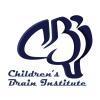Get Care
Pediatric Post-streptococcal Treatments
Treating Post-streptococcal Disorders

Post-streptococcal disorder is a group of autoimmune disorders that occur after an infection with Streptococcus pyogenes, also known as group A Streptococcus. Group A streptococcal (GAS) infections can range from a mild skin infection or a sore throat to Sydenham’s chorea, behavioral problems, and severe life-threatening conditions. Most people are familiar with strep throat, which along with minor skin infections, is the most common form of the disease.
Following infection by Strep, several inflammatory syndromes can occur in the body, including:
- Tonsils may be swollen and have white spots on them.
- Impetigo is a highly contagious skin infection that causes red sores on the face.
- Reactive arthritis symptoms are joint pain and swelling triggered by an infection in another body part.
- Toxic shock syndrome is a potentially fatal condition caused by the release of bacterial toxins.
- Glomerulonephritis – inflammation, and damage to the filtering part of the kidneys
- Rheumatic fever – causes painful inflammation, especially of the heart, blood vessels, and joints.
- Scarlet fever is an illness that follows strep throat. It causes a red rash on the body.
- Cellulitis and necrotizing fasciitis (flesh-eating disease)
FAN
Our Fast Access Neurology (FAN) Service ensures a clinic visit with expert pediatric neurologist in our institution within 24 to 72 hours after referral or initial contact with the Children’s Brain Institute.
Treatment options depend on which disorder the child has. There are no cures for the disorders; treatment focuses on treating the symptoms. Antibiotics are given to ensure that the GAS infection is gone and prevent acute rheumatic fever.
Severe cases of chorea may be treated with anticonvulsants, steroids, or intravenous immune globulin. For behavioral complications, medications include sedatives, anti-anxiety medications, and antidepressants. Tonsillitis treatment is generally treated with a course of antibiotics. Impetigo is treated with antibiotics that are rubbed onto the sores (topical antibiotics) or taken by mouth (oral antibiotics). Reactive arthritis treatment starts with Nonsteroidal anti-inflammatory drugs (NSAIDs). Severe inflammation or intolerance to NSAIDs will likely lead to prescribed steroid medication to reduce inflammation. Treatment for toxic shock syndrome will involve antibiotics to treat the infection, and in some cases, intravenous immune globulin is given. Acute rheumatic fever treatments often include nonsteroidal anti-inflammatory drugs (NSAIDs). Scarlet fever is most often treated with a course of antibiotics. Treatment for cellulitis is to remove the contaminated tissue. Removal may be surgical, mechanical, chemical, autolytic, and by maggot therapy. Antibiotic therapy is crucial but is considered adjunctive to surgical management.

Accepted Health Insurance Types
Various health insurance types are accepted, including Medicare and most HMO and PPO insurance.
Call (781) 863-0007 or click to request a same-day appointment.
